Grow Basil With These Companion Herbs For A Pestfree Garden
Grow Basil With These Companion Herbs For A PestFree Garden
Basil is a delicious and versatile herb that can be used in a variety of dishes. It is also a relatively easy herb to grow, but it can be susceptible to pests. Companion planting is a great way to help protect basil from pests and diseases.
Companion planting is the practice of planting certain plants together in order to benefit each other. Some plants have natural pest-repelling properties, and when they are planted near other plants, they can help to protect those plants from pests.
There are many different herbs that can be companion plants for basil. Some of the best include:
- Marigolds: Marigolds are known for their insect-repelling properties. They can help to deter a variety of pests, including aphids, whiteflies, and spider mites.
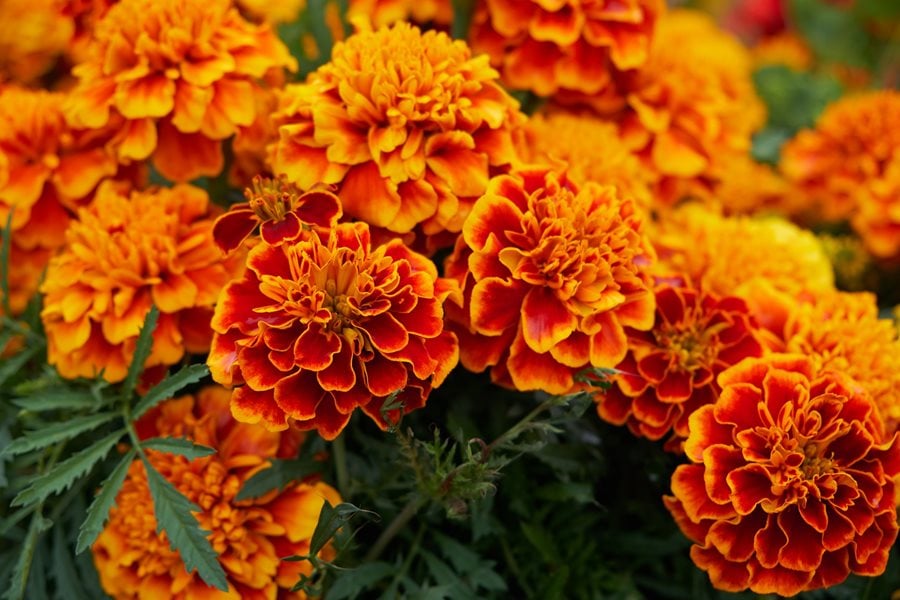
- Chives: Chives are another herb with insect-repelling properties. They can help to keep away pests like aphids, cabbage moths, and carrot rust flies.
- Oregano: Oregano is a fragrant herb that can help to improve the flavor of basil. It also has some insect-repelling properties.
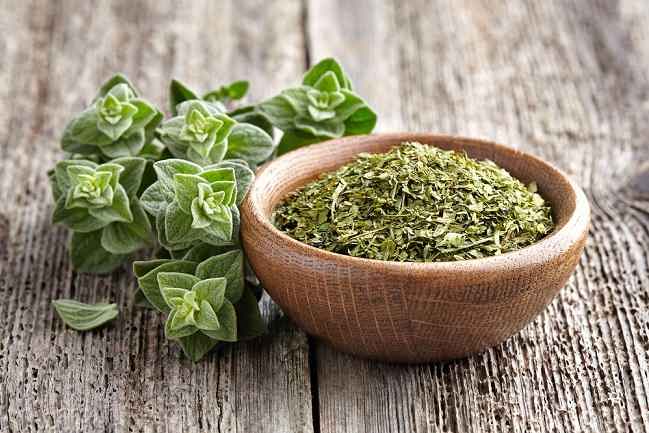
- Garlic: Garlic is a strong-smelling herb that can help to repel a variety of pests. It can also help to improve the flavor of basil.

- Tomatoes: Tomatoes and basil are often grown together because they benefit each other. Tomatoes can help to protect basil from pests, and basil can help to improve the flavor of tomatoes.
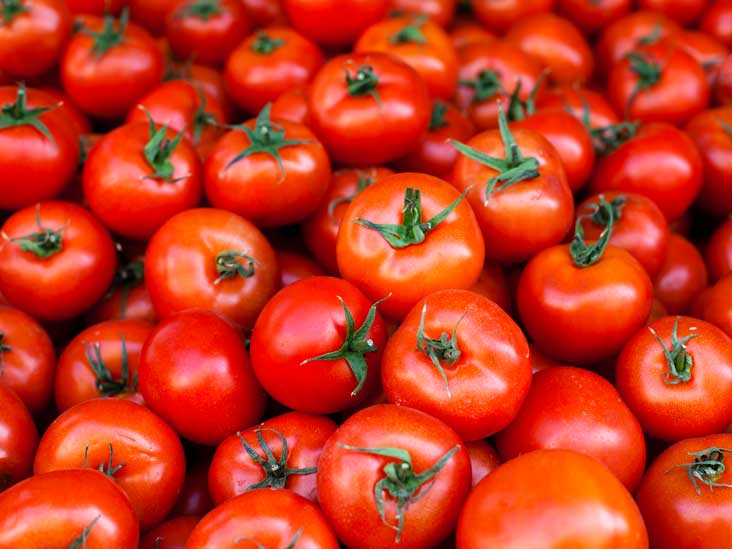
- Peppers: Peppers and basil are also good companion plants. They can help to repel pests and improve the flavor of each other's fruits.

In addition to these herbs, there are a number of other plants that can be companion plants for basil. Some of these include:
- Asparagus: Asparagus attracts ladybugs, which help to control pests.
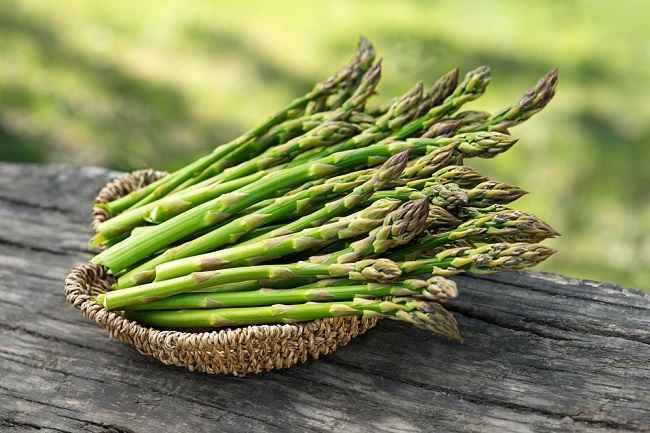
- Borage: Borage is a flowering herb that attracts beneficial insects. It also has some insect-repelling properties.
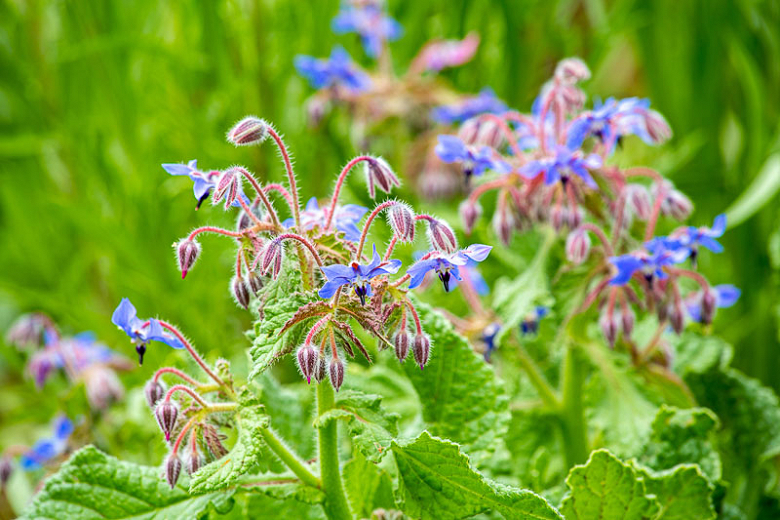
- Carrots: Carrots and basil can help to repel each other's pests.
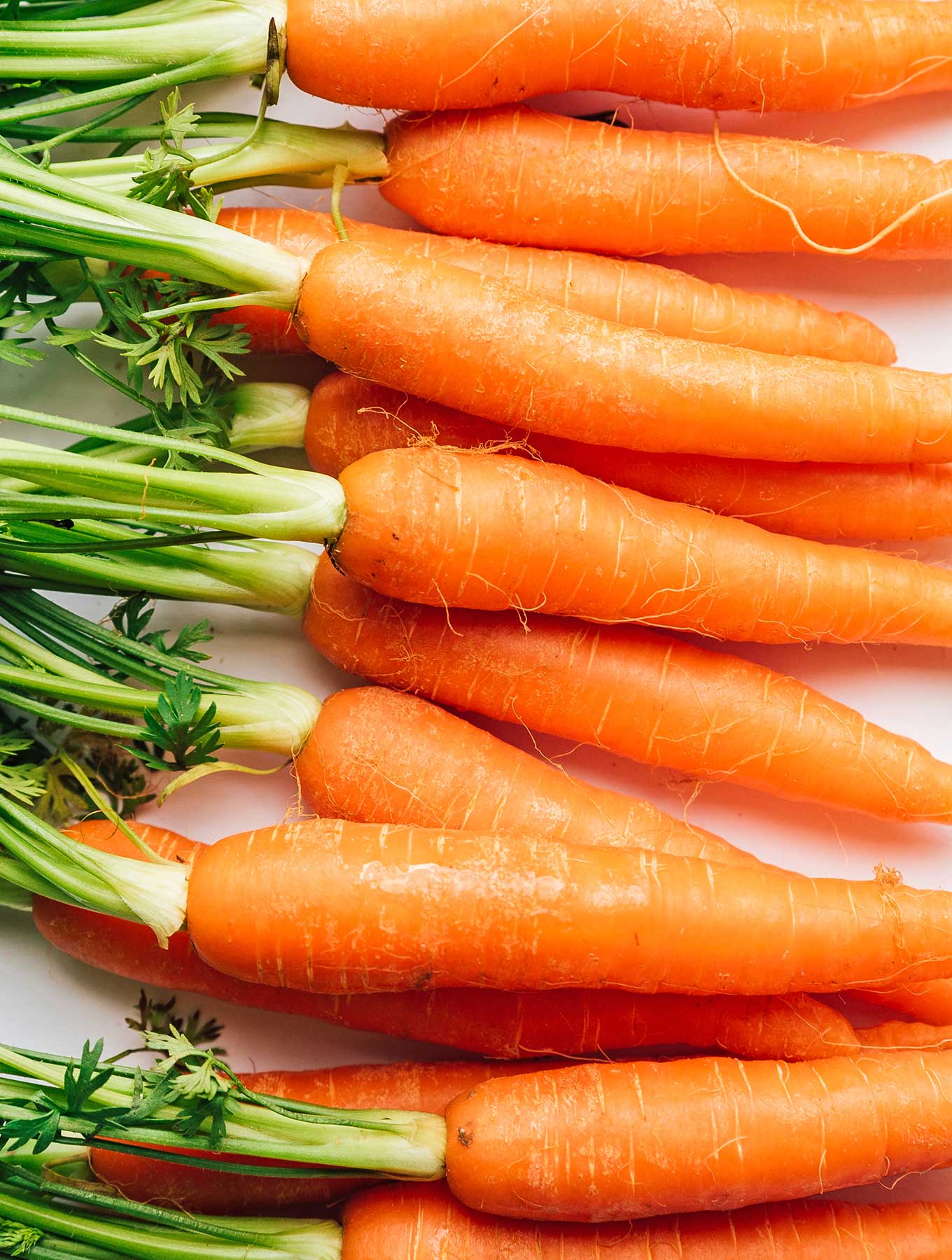
- Lettuce: Lettuce and basil can help to improve each other's flavor.
- Spinach: Spinach and basil can help to repel pests.

When planting basil with companion herbs, it is important to consider the spacing requirements of each plant. Some herbs, such as marigolds and chives, need more space than others. It is also important to consider the sunlight and water requirements of each plant.
By planting basil with companion herbs, you can help to protect your basil from pests and diseases. You can also improve the flavor of your basil and enjoy the benefits of both herbs.
Basil is a delicious and versatile herb that can be used in a variety of dishes. But did you know that basil can also be a great companion plant for other herbs and vegetables?
There are many benefits to companion planting, including:
- Increased crop yields
- Reduced pest and disease problems
- Enhanced pollination
- Improved soil quality
Basil is a particularly good companion plant for tomatoes, peppers, eggplant, and beans. It also helps to repel pests such as aphids, mosquitoes, and whiteflies.
If you're interested in learning more about basil companion planting, I recommend visiting Garden Wiki. This website has a wealth of information on the topic, including a list of the best companion plants for basil, as well as tips on how to plant and care for your herbs.
FAQ of basil companion herbs
Q: What are the best companion plants for basil?
A: Some of the best companion plants for basil include:
- Marigolds: Marigolds help to attract beneficial insects, such as ladybugs and parasitic wasps, which can help to control pests that damage basil plants. They also help to repel nematodes, which can damage the roots of basil plants.
- Potatoes: Potatoes and basil are both members of the nightshade family, and they benefit from being planted together. Potatoes help to suppress weeds, and basil helps to repel pests that damage potatoes.
- Cilantro: Cilantro and basil have similar growing requirements, and they can help to improve the flavor of each other. Cilantro also helps to repel aphids, which can damage basil plants.
- Root vegetables: Root vegetables, such as carrots, beets, and radishes, can help to deter pests that damage basil plants. They also help to improve the drainage of the soil, which is important for basil plants.
- Oregano: Oregano and basil have complementary flavors, and they can help to repel pests that damage both plants. Oregano also helps to improve the flavor of basil, and it can help to extend the shelf life of basil leaves.
Q: What plants should I avoid planting near basil?
A: There are a few plants that you should avoid planting near basil, including:
- Cucumbers: Cucumbers and basil compete for resources, such as water and nutrients. This can lead to poor growth in both plants.
- Fennel: Fennel produces a chemical that can stunt the growth of basil plants.
- Thyme: Thyme and basil have similar growing requirements, but they can compete for space. This can lead to poor growth in both plants.
- Common rue: Common rue produces a chemical that can be toxic to basil plants.
- Sage: Sage and basil have similar growing requirements, but they can compete for space. This can lead to poor growth in both plants.
Q: How do I plant basil companion plants?
A: When planting basil companion plants, it is important to consider the size and growth habit of each plant. For example, marigolds and potatoes are both relatively large plants, so they should be planted at least 18 inches apart. Cilantro and basil are both relatively small plants, so they can be planted closer together.
It is also important to consider the sun exposure requirements of each plant. Basil prefers full sun, while marigolds and potatoes can tolerate partial shade. Cilantro and root vegetables can tolerate full sun or partial shade.
Q: What are the benefits of planting basil companion plants?
A: There are several benefits to planting basil companion plants. These plants can help to:
- Attract beneficial insects: Beneficial insects, such as ladybugs and parasitic wasps, help to control pests that damage basil plants.
- Repel pests: Some companion plants, such as marigolds and oregano, can help to repel pests that damage basil plants.
- Improve the flavor of basil: Some companion plants, such as cilantro and oregano, can help to improve the flavor of basil.
- Extend the shelf life of basil leaves: Some companion plants, such as oregano, can help to extend the shelf life of basil leaves.
Image of basil companion herbs
5 images of basil companion herbs from Pinterest:
- Chives: Chives are a good companion for basil because they help to repel pests. They also have a similar growing habit, so they can be planted close together.
- Oregano: Oregano is another good companion for basil because it helps to repel pests. It also has a strong scent that can help to mask the smell of basil, which can attract pests.
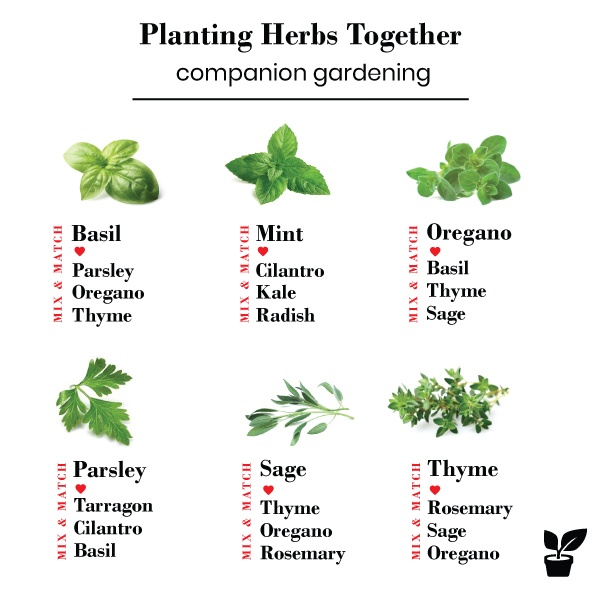
- Marigolds: Marigolds are not technically herbs, but they are often planted in herb gardens because they repel pests. They also have a bright orange color that can add some contrast to the green leaves of basil.
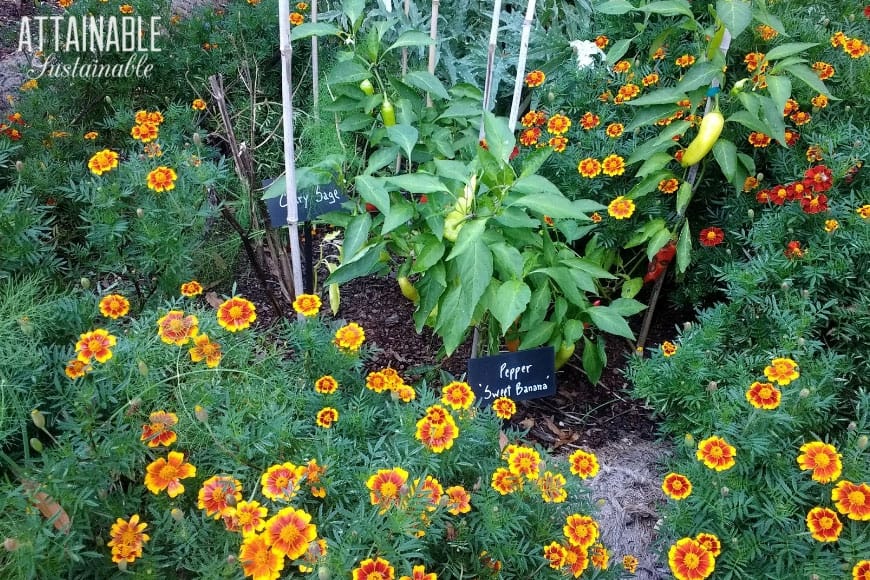
- Thyme: Thyme is a good companion for basil because it helps to improve the flavor of basil. It also has a similar growing habit, so it can be planted close together.

- Lettuce: Lettuce is not a traditional companion herb for basil, but it can actually help to improve the growth of basil. Lettuce provides shade for basil, which can help to protect it from the sun.
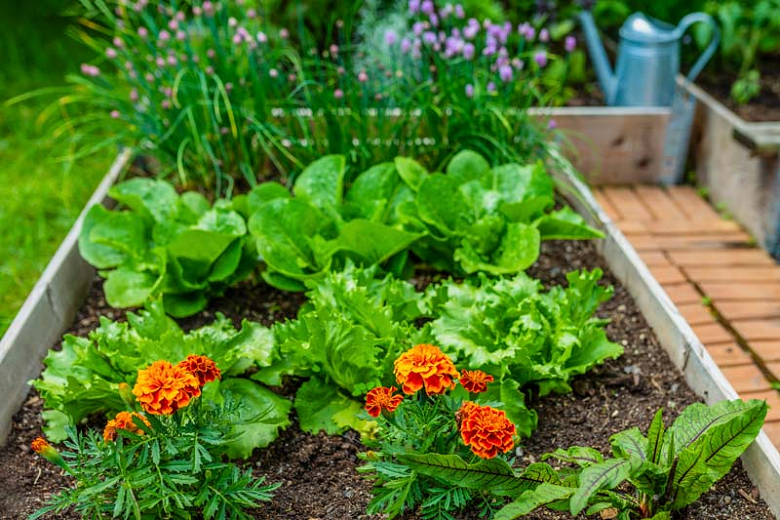

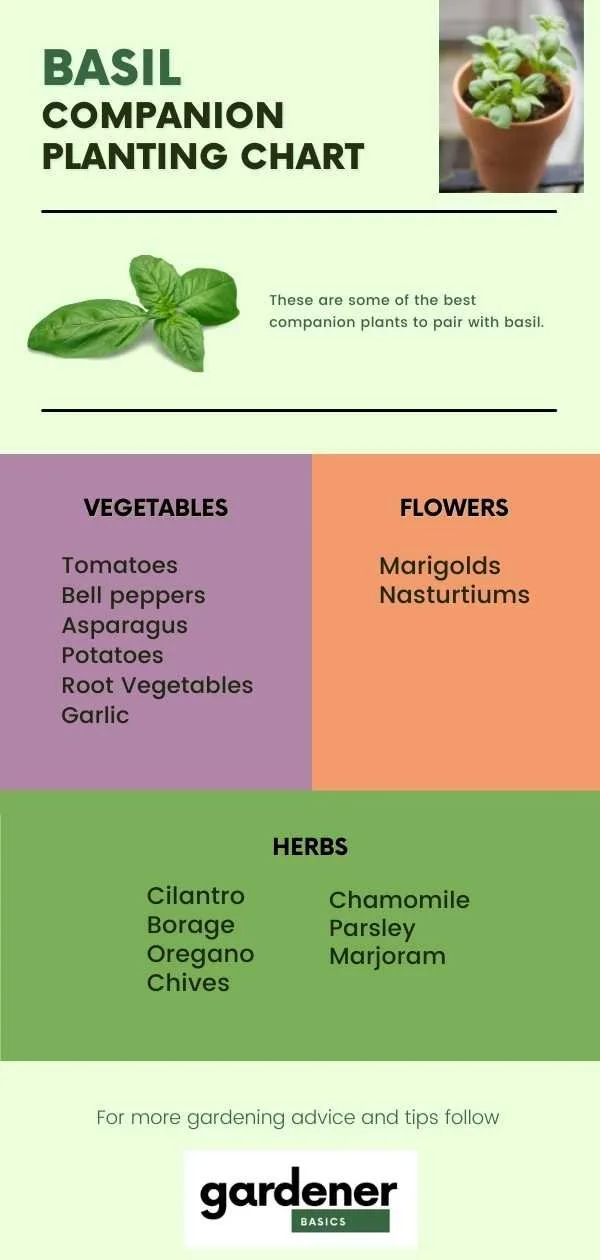
Post a Comment for "Grow Basil With These Companion Herbs For A Pestfree Garden"